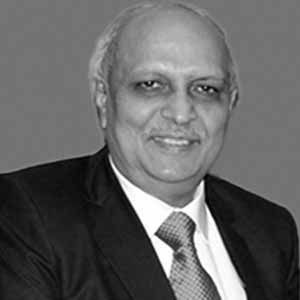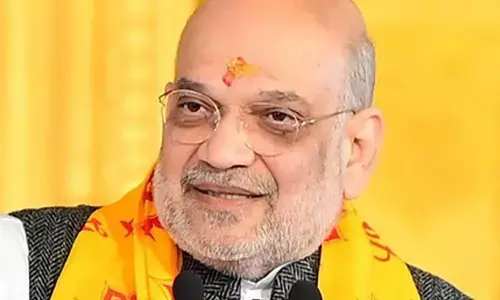Anti-Corruption Act penalises decision-takers

Training for the IAS officers at Lal Bahadur Shastri National Academy of Administration at Mussoorie is held in two phases After a ninemonth training, probationers go for the district training and come back for a three months second phase When we were probationers in the first phase
Training for the IAS officers at Lal Bahadur Shastri National Academy of Administration at Mussoorie is held in two phases. After a nine-month training, probationers go for the district training and come back for a three months second phase. When we were probationers in the first phase We had a director about whom only thing I can recollect was that he used to boast he fed so many millions of Indians as food secretary. When we came back for the second phase atmosphere in the academy had changed for good with Mr Appu as the director. Very informal in his approach and intellectual in his thinking he used to engage probationers in lively discussions in small groups.
One of the issues for discussion in one of those groups I remember was honesty versus efficiency. Though there was no dispute that honest and efficient officer is the best and dishonest and inefficient is the worst, ranking of the dishonest efficient and honest and inefficient used be debated in the groups. But once you land in the job you realise that, forget about all this categorisation, the way the Prevention of Corruption Act is drafted, a honest efficient officer can also be penalized, categorised as dishonest since he takes decisions. Those who shirk from taking decisions and careful enough to do their paperwork properly even if they are dishonest may go scot free.
The section which caused this aberration was 13(1)d (ii) and (iii) which read as follows: A public servant is said to commit the offence of criminal misconduct If he (ii) by abusing his position as a public servant obtains for himself or for any other person any valuable things or pecuniary advantage or
(iii) while holding office as a public servant obtains for any person any valuable thing or pecuniary advantage without any public interest. Honourable courts through a series of decisions interpreted abuse to mean each and everything thing from exceeding Jurisdiction to unreasonableness. Hence a civil servant can be fixed for abuse of power resulting in pecuniary advantage to any other person abuse of power interpreted in its widest meaning.
All decisions result in some advantage to some one or the other and public interest is also liable for different interpretations. On this count also anyone can be fixed. Further decisions which look normal at a point of time can look different in hindsight. Though there is a provision for prior sanction of the government for prosecution of serving officers absence of the same for the retired officers made them more vulnerable.
Classic case was that of Shri PC Parakh against whom a case was booked 10 years after his retirement for decisions taken by him as Coal Secretary. He is a rare officer of integrity and efficiency known to take the right decisions and a case against him sent shockwaves among the bureaucrats .He stood his ground and wrote books exposing the loopholes in the system.( No publisher was willing to publish his book “Coal Conundrum: Executive Failure Judicial Arrogance” for fear of incurring contempt of court and he had to publish it himself.) Any number of other officers suffered in silence.
The recent amendments in the Prevention of Corruption Act addresses these shortcomings. As per the amended Act, criminal misconduct is restricted to fraudulent misappropriation of the property entrusted to him or he intentionally enriches himself illicitly during the period of his office commonly known as disproportionate assets case. Obtaining sanction of the competent authority for filing charge sheet is extended to the retired officers as well.
Both these amendments address effectively the concerns of sincere honest and efficient officers though substituted Section 7 in the new Act can still be a cause of concern as it mentions causing any undue advantage for himself or for another person by abusing his official position. One has to wait and see how investigating agencies and the courts interpret this provision before celebrating a legal framework which provides freedom for bureaucrats to take decisions without the fear of being harassed at a later date.
Amended act provides for taking prior permission of the government for starting any enquiry or investigation against any public servant. This dilutes the effectiveness of the investigating agencies. Forming of committee of senior officers to give such clearances on a continuous basis could have been a better option.
It is not all that difficult for the investigating agencies to prove a quid pro quo or build up a proper case of corruption. These deemed provisions and vague definitions are used by the investigating agencies to cover up their inefficiencies in investigation and make out a case against officers. It is always preferable to ensure not even one honest civil servant is harassed even if it means in the process some dishonest go scot-free.
Any system which results in harassment of an honest officer sends the wrong signals leading to loss of morale in the bureaucracy which is detrimental to decision-making resulting in ineffective functioning of the administrative system.















